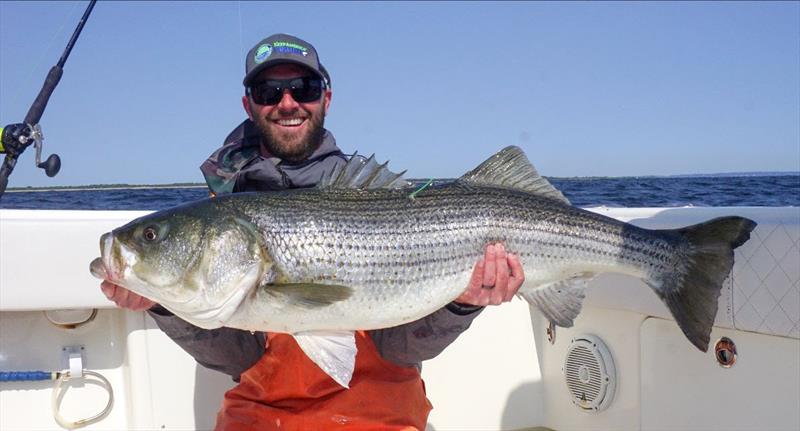
ASA and Conservation partners speak out for Striped Bass
by American Sportfishing Association 30 Jan 18:14 UTC

ASA guidance on Proposed Changes to Striped Bass Management © American Sportfishing Association
Last week, after months of public hearings, the ASMFC's Atlantic Striped Bass Management Board (Board) met to finalize Addendum II which contains management changes for the 2024 striped bass season. Action on Addendum II follows a May 2023 decision where the Board voted 15-1 to evoke emergency action to address rising fishing mortality rates resulting from increased catches in 2022.
However, last week, Board deliberations on questions like recreational mode splits (granting for-hire operators a different bag and/or size limit) and commercial quota reductions were less decisive. Mode splits were an especially challenging question because recreational regulations for other targeted species like black sea bass and scup continue to get more restrictive despite those populations being 200% of their biomass targets, creating an economic squeeze on the entire recreational fishing industry and particularly the for-hire operators.
Ultimately, the Board approved the following options, most by a thin majority, including:
- A one-fish bag limit with a slot of 19-24 inches in Chesapeake Bay and 28-31 inches in the ocean recreational fishery.
- No mode splits, meaning private, shore and for-hire anglers adhere to the same regulation.
- A 7% reduction to commercial quotas in Chesapeake Bay and ocean fisheries.
- Empowering the Board to act if the 2024 stock assessment shows rebuilding is off schedule.
"Anglers submitted thousands of comments, so it was a stressful meeting as the Board prioritizes conservation resulting in real economic consequences to our community," said Mike Waine, Atlantic Fisheries Policy Director for the American Sportfishing Association. "The Board chose options that continue to address fishing mortality, but these were labored discussions that demonstrate the Board struggling to balance the needs of the recreational fishing community while achieving current conservation goals."
"The striped bass board reacted to public input and the harsh reality of the overall stock condition to make some difficult yet necessary decisions to cut fishing mortality for the 2024 season." said David Sikorski, CCA Maryland Executive Director and ASMFC Commissioner. "Unfortunately, these actions are simply a next step in what will likely be a series of more difficult decisions to come."
"When popular fisheries are depleted, whether driven by environmental stressors, harvest, or some combination of the two, difficult decisions often have to be made," said Chris Horton, Senior Director of Fisheries Policy for the Congressional Sportsmen's Foundation. "Fishing effort is the only thing the ASMFC can directly control, and it was the right choice to apply conservation measures equally across the board as all anglers play the same role in rebuilding this incredibly important fishery."
In October, the Board will review results from the 2024 stock assessment that will provide additional rebuilding projections and evaluate fishing mortality through 2023. In the meantime, a subset of the Board members will be working with stakeholders to explore discard mortality, including challenges the Board has faced in addressing dead discards and possible solutions moving forward.